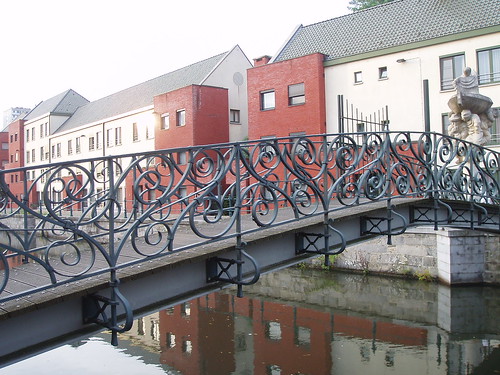
I attended this event as a speaker and really enjoyed the keynote speech and the other workshops on the day. Transition is something we all work at but also something that is really difficult to resolve permanently as each school’s circumstances are different and always changing. So more than a magical recipe, an ever-growing set of possible strategies is likely to be more effective. Being opened to sharing new ideas on how to cope with transition issues is indeed crucial...
Jim McElwee, from Redcar & Cleveland LA, gave an inspirational Keynote speech presenting projects and issues he had come across as an adviser. He introduced us to the Honeycomb Project, aiming to develop students listening and speaking skills through the use of ICT.
Jim asked a controversial question: Are we interested in what children know? If we truly are, this should affect our attitude to errors and how we correct them. Making connections was also mentioned as essential to developing speaking skills in particular. The example given was a presentation on planets and it showed that the appropriate level challenge represented by integrating planet, colours and pronunciation made it more effective to develop students’ skills rather than teaching these items separately.
I then attended Liz Black’s session. Liz is an AST at Stokesley School in North Yorkshire. She has a wealth of experience in organising cross-curricular projects, some of them can be viewed on her school website .
Liz introduced us to her new project based around wild animals and the circus. The aims of the project are:
*to build on prior learning
*to merge primary and secondary pedagogies more closely
*to provide challenge and encourage independent learning
*to increase the use of authentic resources
*to link the different areas of the curriculum
The schemes of work were developed with the support of the SLN which provided quality time, something always crucial to the success of such projects.
The transition unit included latin words for some of the animals, geography, science, Art, citizenship. The aim was for the content to be age-appropriate, meaningful and challenging. Each areas of the curriculum were linked-for instance the geography units on “Les continents” and “Le réchauffement de la terre” set the scene for the animal unit. There was also a strong focus on developing independent learning skills through encouraging the use of dictionaries and glossaries, for instance. The link to science was made through looking at the characteristics of the Artic Hare and the link with Art involved describing various animals and looking at unusual sculptures.
Poems like Cinquains and Haikus were used to raise self-esteem and demonstrate that “with a little bit of language, you can do a lot”. I found Haikus particularly interesting-3 lines and 17 syllables-with the idea that students could beat the rhythm of a particular word for others to guess. Y8 were asked to do these poems for Primary children to raise their motivation.
Topics like animals in captivity with strong images and music were used and movie-maker presentations designed as outcome to be assessed and revision material for Year 9. The assessment was done by using a Flip camera to record and peer-assess the outcome. It was felt that there was no need for a formal sit-down test. Plenary activities included “Find the link between...”, “Give an example of”, “If I was an animal, I would be ... because...” as a way to recap using the Target Language. Other websites used by Liz for her Unit of work can be found here .
Last but not least, I attended Florence Finneberg’s workshop, run with Betty Sachet from Coldfall Primary School: “ Developing capacity in primary environments and capitalising on students’ progress in Year 7. Florence is an AST at the Fortismere High School in Muswell Hill, North London and she works closely with her 4 feeder primary schools in order to build on previous learning and stretch students in Year 7. The National Curriculum levels 1-5 are introduced in Primary and resources shared although used differently e.g. listening materials. Sharing success criteria earlier has also been key to raising standards as well as introducing peer assessment for speaking.
No comments:
Post a Comment